第30章
Lord Elgin, then, knows beforehand that the British Goverment "will desire" that his brother, Mr. Bruce, be accompanied by "an imposing force" of "gunboats" up the Pciho, and he orders Admiral Seymour to make ready "for this service." The Earl of Malmesbury, in his dispatch dated May 2, approved of the suggestion intimated by Lord Elgin to the Admiral. The whole correspondence exhibits Lord Elgin as the master, and Lord Malmesbury as the man. While the former constantly takes the initiative and acts upon the instructions originally received from Palmerston, without even waiting for new instructions from Downing Street, Lord Malmesbury contents himself with indulging "the desires"which his imperious subaltern anticipates him to feel. He nods assent when Elgin states that the treaty being not yet ratified, they had not the right to ascend any Chinese river; he nods assent, when Elgin thinks they ought to show much forbearance towards the Chinese in regard to the execution of the article of the treaty relating to the embassy to Pekin; and, nothing daunted, he nods assent when in direct contradiction to his own former statements, Elgin claims the right to enforce the passage of the Pciho by an "imposing fleet of gunboats." He nods assent in the same way that Dogberry nodded assent to the suggestions of the sexton.
The sorry figure cut by the Earl of Malmesbury and the humility of his attitude, are easily understood if one calls to mind the cry raised on the advent of the Tory Cabinet by the London Times and other influential papers, as to the grea peril threatening the brilliant success which Lord Elgin, under the instructions of Palmerston, was about to secure in China, but which the Tory Administration, if for pique only, and in order to justify their vote of censure on Palmerston's Canton bombardment, were likely to baffle. Malmesbury allowed himself to be intimidated by that cry. He had, moreover, before his eyes and in his heart the fate of Lord Ellenborough, who had dared openly to counteract the India policy of the noble Viscount, and in reward for his patriotic courage, was sacrificed by his own colleagues of the Derby Cabinet. Consequently, Malmesbury resigned the whole initiative into the hands of Elgin, and thus enabled the latter to execute Palmerston's plan on the responsibility of his official antagonists, the Tories. It is this same circumstance which for the present has put the Tories in a very dismal alternative as to the course to be taken in regard to the Peiho affair. Either they must sound the war trumpet with Palmerston, and thus keep him in office, or they must turn their backs on Malmesbury, upon whom they heaped such sickening flatteries-, during the late Italian war.
The alternative is the more trying since the impending third China war is anything but popular with the Britisb mercantile classes. In 1857they bestrode the British lion, because they expected great commercial profits from a forcible opening of the Chinese market. At this moment, they feel, on the contrary, rather angry at seeing the fruits of the treaty obtained, all at once snapped away from their hold. They know that affairs look menacing enough in Europe and India, without the further complication of a Chinese war on a grand scale. They have not forgotten that, in 1857, the imports of tea fell by upward of 24millions of pounds, that being the article almost exclusively exported from Canton, which was then the exclusive theatre of war, and they apprehend that this interruption of trade by war may now be extended to Shanghai and the other trading ports of the Celestial Empire. After a first Chinese war undertaken by the English in the interest of opium smuggling, and a second war carried on for the defence of the lorcha of a pirate, nothing was wanted for a climax but a war extemporized for the purpose of pestering China with the nuisance of permanent Embassies at its capital.
~~~~~~~~~~~~~~~~~~~~~~~~~~~~~~~~~~~~~~~~~~~~~~~~~~~~~~~~~~~~~~~~~~~~~~~~~~~~~~~~~~~~~~~~~~~~~~~~~~~~~~~~~~~~~~~~~~~~~~~~~~~~~~~~~~~~~~~~~~~~~~~~TRADE WITH CHINA
~~~~~~~~~~~~~~~~~~~~~~~~~~~~~~~~~~~~~~~~~~~~~~~~~~~~~~~~~~~~~~~~~~~~~~~~New York Daily Tribune December 3, 1859
by KARL MARX
AT A time when very wild views obtained as to the impulse American and British commerce were sure to receive from the throwing open, as it was called, of the Celestial Empire, we undertook to show, by a somewhat elaborate review of Chinese foreign commerce since the commencement of this century, that those high-flown anticipations had no solid ground to stand upon. Quite apart from the opium trade, which we proved to grow in an inverse ratio to the sale of' Western manufactures, we found the main obstacle to any sudden expansion of the import trade to China in the economical structure of Chinese society, depending upon the combination of minute agriculture with domestic industry. We may now, in corroboration of our former statements, refer to the Blue Book entitled, Correspondence Relative to Lord Elgin's Special Missions to China and Japan.